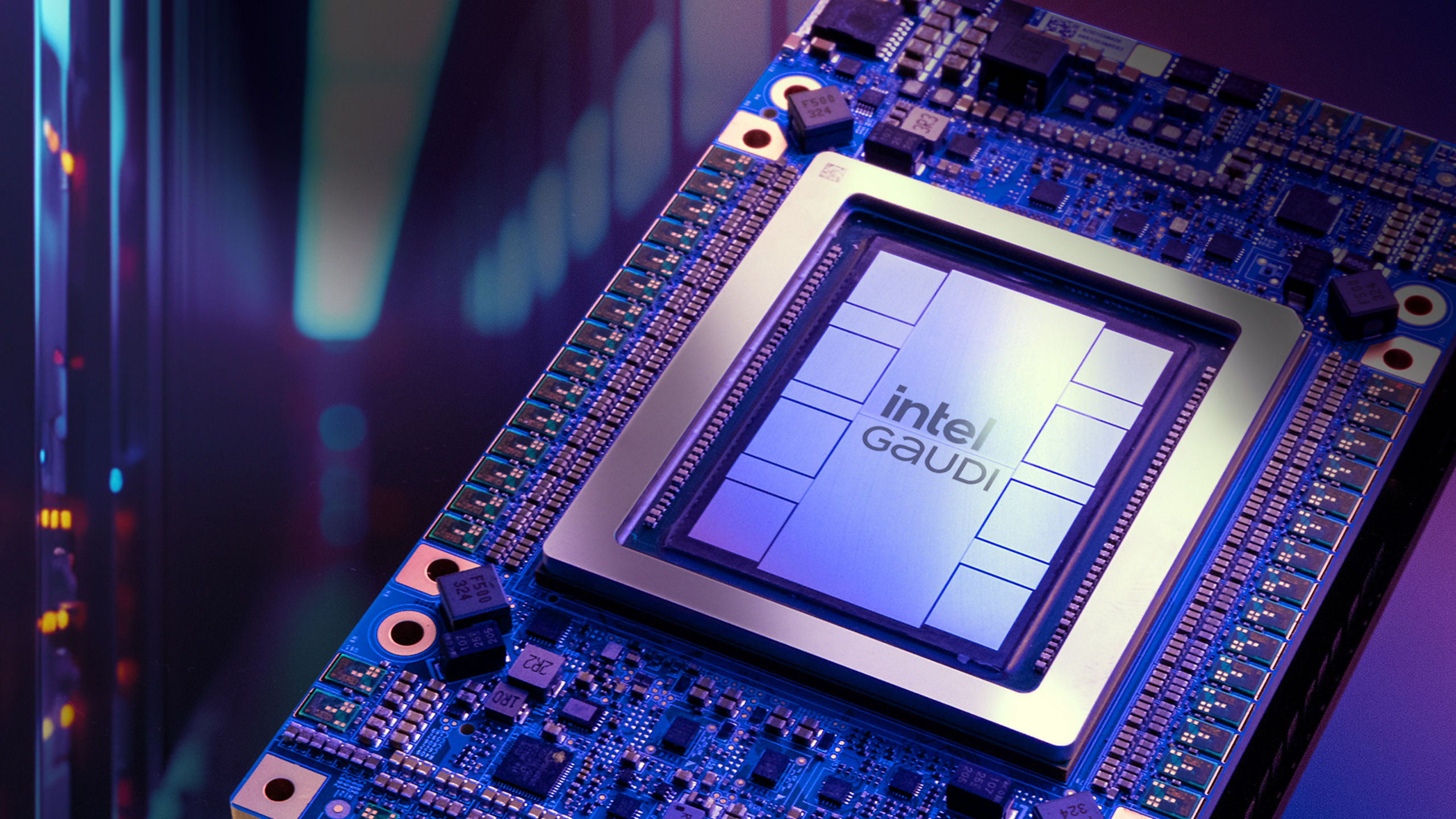Intel debuts super-fast AI chips – looking to match AMD in the race for AI chip supremacy
Xeon 6 and Gaudi 3 chips are designed for high-performance AI workloads

Intel has been having a challenging time in recent years, particularly following the launch of the iPhone with Apple silicon, and the rise of an AI and data center chip industry largely dominated by Nvidia and AMD.
The company isn't taking these developments lying down, though, and has announced the release of its Xeon 6 chips and new Gaudi 3 AI accelerators.
The Intel Xeon 6900 P-core series, as the chips are known, offers up to 128 cores for extremely intense AI workloads, doubling the performance of its predecessors, with higher core counts, more memory bandwidth, and embedded AI acceleration.
Power boost

On the Gaudi side, the new Gaudi 3 AI Accelerator chips, aimed at generative AI, come with 64 Tensor CPU cores, eight matrix multiplication engines, and 128GB of HBM2e memory, offering up to 20% more throughput and twice the price and performance over Nvidia's H100 chips for LLaMa 2 70B inference.
The specs Intel is touting for the Gaudi 3 and Xeon 6 chips are really impressive, and would signal the company has managed to innovate at least a little out of the hole it finds itself in.
Beyond designing and making the chips, Intel has also partnered with Dell and Supermicro to work on "co-engineered systems" that are made specifically for the specific AI needs of those companies. For its part, Dell is co-engineering RAG-based solutions leveraging Gaudi 3 and Xeon 6.

Watch out AMD – or not?
AMD has been the biggest beneficiary of Intel's largesse in the AI chip space, designing powerful chips that are then manufactured by TSMC. It's a good business model and one that Intel has largely struggled to replicate or disrupt.
Are you a pro? Subscribe to our newsletter
Sign up to the TechRadar Pro newsletter to get all the top news, opinion, features and guidance your business needs to succeed!
The company plans to release its fifth-gen EPYC Turin 3nm data center chips in the second half of 2024 sometimes, based on its Zen 5 architecture and featuring up to 192 cores and 384 threads, so more than a match for the Xeon and Gaudi chips, at least on paper.
In the closely-watched Top500 list, the Intel-powered Aurora supercomputer, which is not yet fully operational, came second behind the AMD-powered Frontier, but did take first in an AI benchmark.
MORE FROM TECHRADAR PRO
- AMD will be pleased to hear the latest rumor on Intel CPUs – after Arrow Lake, no desktop chips are coming until Nova Lake in 2026
- Intel has reportedly canceled Beast Lake and its follow-up – and I’m gutted it’s killed off my dream gaming CPU
- Intel CPU prices are nosediving right now - here's why
Max Slater-Robins has been writing about technology for nearly a decade at various outlets, covering the rise of the technology giants, trends in enterprise and SaaS companies, and much more besides. Originally from Suffolk, he currently lives in London and likes a good night out and walks in the countryside.